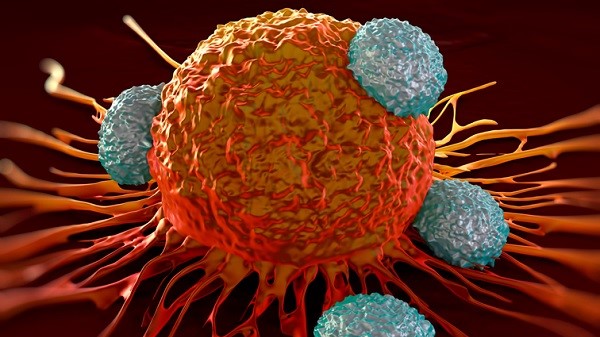Cancer immunotherapy pioneers awarded Nobel medicine prize

Cancer immunotherapy pioneers James Allison and Tasuku Honjo have been awarded this year’s Nobel Prize in Physiology or Medicine.
The Karolinska Institutet’s Nobel Assembly awarded the prize for their discovery of cancer therapy “by inhibition of negative immune regulation.”
The work by Allison and Honjo paved the way for drugs such as Bristol-Myers Squibb’s Yervoy (ipilimumab), which work by turning off the safety mechanisms in the immune system that prevents it from attacking the patient’s own body.
This allows the immune system to launch an attack against cancer – a mechanism that is fast becoming the basis for standard therapy in diseases such as melanoma and lung cancer.
Allison, currently professor and chair of Immunology and executive director, immunotherapy platform at the M. D. Anderson Cancer Center, studied a known protein, cytotoxic T-lymphocyte associated protein-4 (CTLA-4), that functions as a brake on the immune system.
He realised the potential of releasing the brake and thereby unleashing our immune cells to attack tumours. He then developed this concept into a brand new approach for treating patients.
Inhibition of CTLA-4 is the mechanism exploited by Bristol-Myers Squibb’s Yervoy (ipilimumab), the first checkpoint inhibitor approved by the FDA in 2011, to treat melanoma.
Honjo, now deputy director-general at the Kyoto University Institute for Advanced Study (KUIAS), discovered the programmed cell death protein (PD-1) protein on immune cells.
After careful exploration of its function, he eventually revealed that it also operates as a brake, but with a different mechanism of action.
In inhibition of PD-1, or its ligand, PD-L1, it forms the basis for all the other checkpoint inhibitors approved so far, including Merck’s blockbuster Keytruda (pembrolizumab).
In its statement the Nobel assembly noted that although PD-1 had proved to be more effective overall, combining the two forms of therapy could be even more effective, as demonstrated in patients with melanoma.

James Allison
The committee concluded in its statement: “Allison and Honjo have inspired efforts to combine different strategies to release the brakes on the immune system with the aim of eliminating tumour cells even more efficiently.

Tasuku Honjo
“A large number of checkpoint therapy trials are currently underway against most types of cancer, and new checkpoint proteins are being tested as targets. For more than 100 years scientists attempted to engage the immune system in the fight against cancer. Until the seminal discoveries by the two laureates, progress into clinical development was modest. Checkpoint therapy has now revolutionised cancer treatment and has fundamentally changed the way we view how cancer can be managed.”
In a statement, Shigefumi More, director general and distinguished professor at KUIAS, said: “It is wonderful that the efficacy of cancer immunotherapy by PD-1 blockade has now been demonstrated worldwide, and that this therapy is actually saving the lives of many people. I would like to express my respect for his important work for human beings, and wish Distinguished Professor Honjo continued success in the future.”












